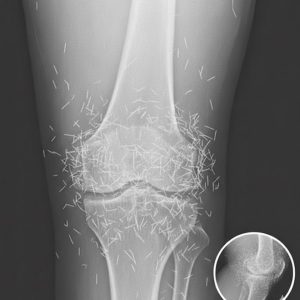David Caruso’s career offers a fascinating look into the journey of an actor who managed to leave a lasting impression on television audiences across several decades. In the early stages of his life as a performer, Caruso took on a number of small roles in both film and television, each of which allowed him to showcase key elements of his emerging style. Even without major screen time, he displayed a seriousness and focus that made him stand out. He brought a grounded quality to his roles, suggesting a deep understanding of character and motivation. This authenticity became one of the defining traits of his craft, earning attention from viewers and professionals who sensed his potential. These early glimpses of his talent helped form the foundation of his future career, setting the stage for the breakthroughs that would soon follow.
Caruso’s rise accelerated significantly when he secured what would become his first major breakthrough: the role of a detective in an ambitious police drama during the early 1990s. The series quickly burst into national prominence, praised for its fresh approach to storytelling and its willingness to blend emotional depth with procedural detail. Caruso’s portrayal of a thoughtful, sharp-minded investigator was particularly celebrated. He carried a calm intensity that made the character feel both believable and deeply engaging, and viewers connected strongly with the sincerity he brought to the role. Critics noted his ability to convey complex emotion with subtlety, adding layers to the character beyond the typical expectations of a crime drama protagonist. It was clear that Caruso was emerging as a major force in television. Yet, despite the show’s growing success, Caruso made the surprising decision to leave after only one season, a move that drew significant attention.
His departure stemmed from a mixture of professional ambition and creative differences, a combination that highlighted Caruso’s desire for artistic control and growth. Leaving a hit show at its peak was a bold decision, one that carried obvious risks. At the time, many questioned whether it was the right move, but Caruso’s choice demonstrated his willingness to pursue challenges that went beyond the security of a stable television role. After stepping away from the series, he turned his attention toward film, hoping to build a career that matched his aspirations. However, the transition proved more difficult than expected. The films he joined during this period failed to resonate with audiences or critics in the way he had hoped, and the commercial outcomes were disappointing. These setbacks placed him in a difficult professional position, creating uncertainty about his future in the industry.
Despite these struggles, Caruso’s resolve remained strong. Rather than stepping back or abandoning his goals, he continued working, committed to improving and trusting his instincts. This period demonstrated his resilience—an essential quality in an industry known for unpredictability and rapid shifts in fortune. Many actors who face similar career downturns find it difficult to recover, but Caruso maintained a steady belief in his abilities. He continued searching for the right project, the right role, the right opportunity that would allow him to fully express the strengths that had once made him a standout figure on television. While the challenges he encountered were substantial, they also played a crucial role in shaping the next chapter of his professional life, one that would prove to be transformative.
Caruso’s resurgence began in the early 2000s, when he accepted a leading role in a new crime-centered television series. The timing was ideal; crime dramas were experiencing a surge in popularity, and audiences were drawn to shows that combined procedural elements with strong character development. Caruso stepped into this environment ready to demonstrate his talent once again. His performance captured the attention of viewers around the world, and the series quickly evolved into a global sensation. The character he portrayed blended authority, emotional complexity, and a distinctive sense of style, making him instantly recognizable and widely associated with the show’s identity. This role not only revitalized Caruso’s career but reestablished him as one of television’s most iconic figures of the era.
The achievement of this new series marked a powerful turning point, restoring the momentum Caruso had lost during his earlier struggles. His return to prominence illustrated the unpredictable but rewarding nature of perseverance. It also reinforced how an actor’s career can be reshaped by the right opportunity at the right moment. Caruso’s performance resonated deeply with international audiences, who appreciated the charisma and intensity he brought to the role. His success in this phase of his career underscored his ability to adapt, evolve, and reconnect with viewers, proving that earlier setbacks did not define him. Instead, they became part of a larger narrative of persistence, reinvention, and triumph.
In time, Caruso made the decision to step away from acting altogether. Born in 1956, he now lives a quieter and more private life, far removed from the spotlight that once followed him. Although he no longer appears on screen, his legacy continues to influence television culture. Fans still revisit his performances, remembering the depth and impact he brought to each character. His career journey—from early beginnings, to breakthrough success, to challenging setbacks, and ultimately to renewed acclaim—reflects the resilience and complexity often required in the entertainment world. David Caruso remains an enduring figure, admired not only for his iconic roles but for the determination and authenticity that shaped his entire professional path.





